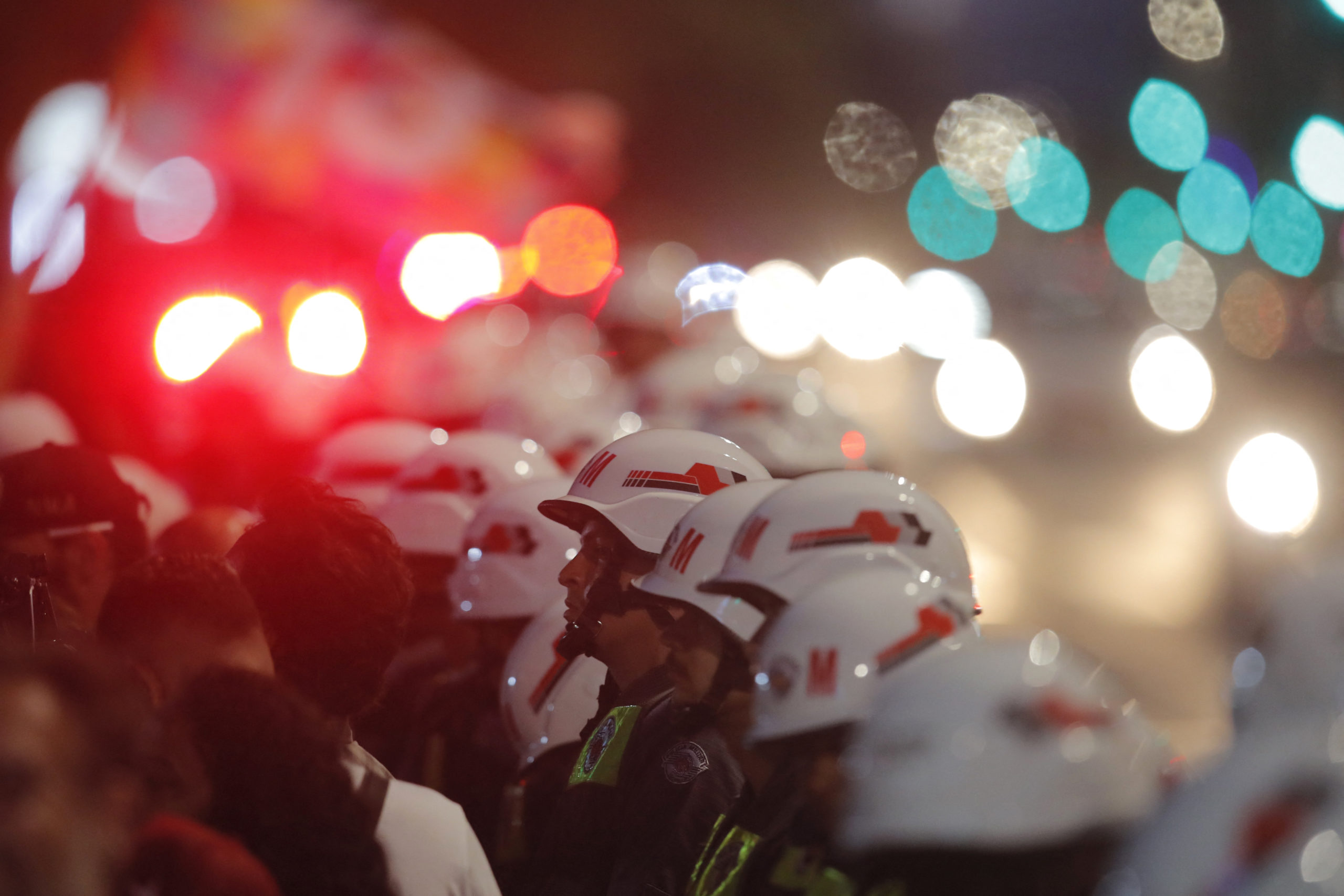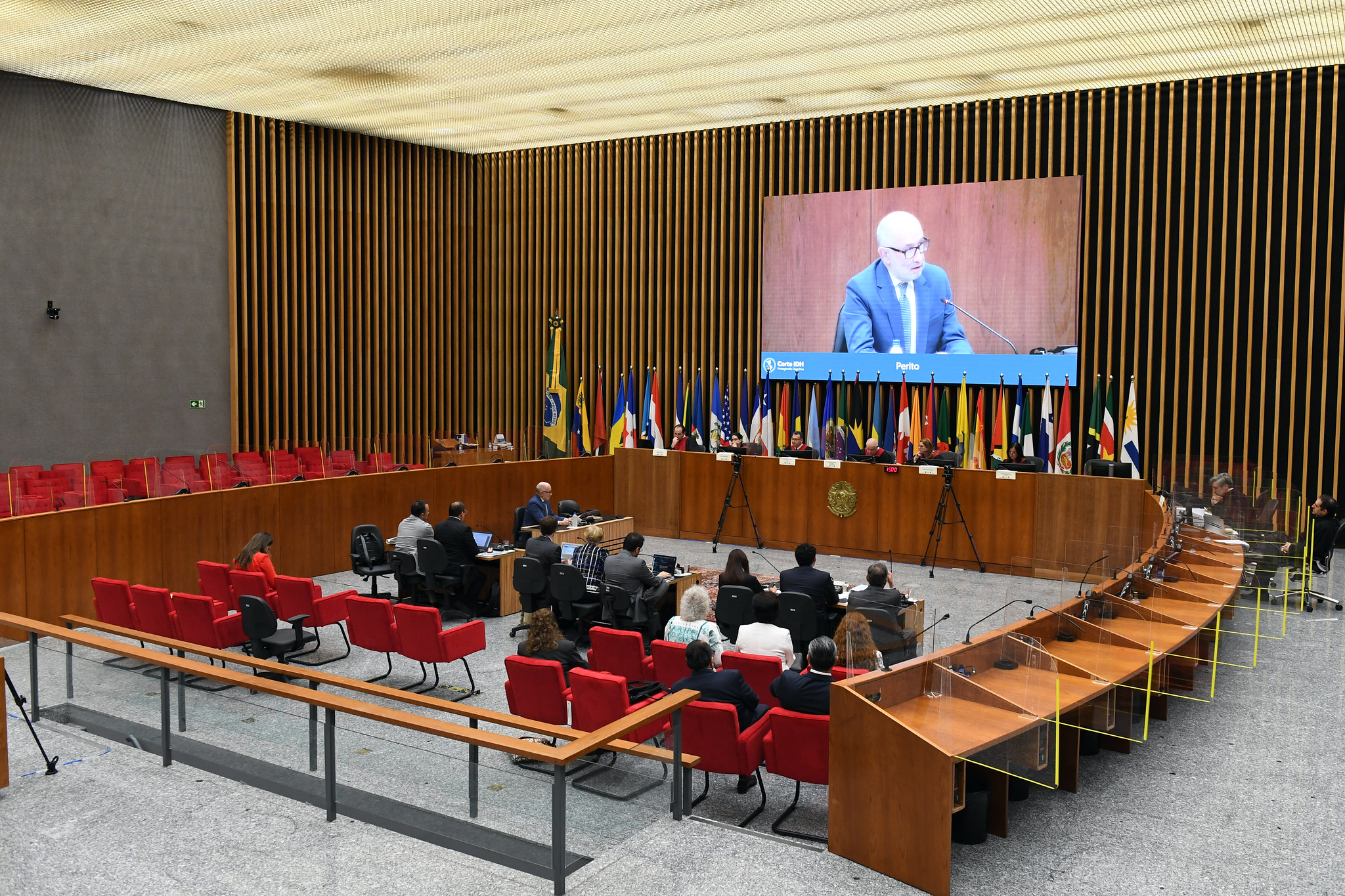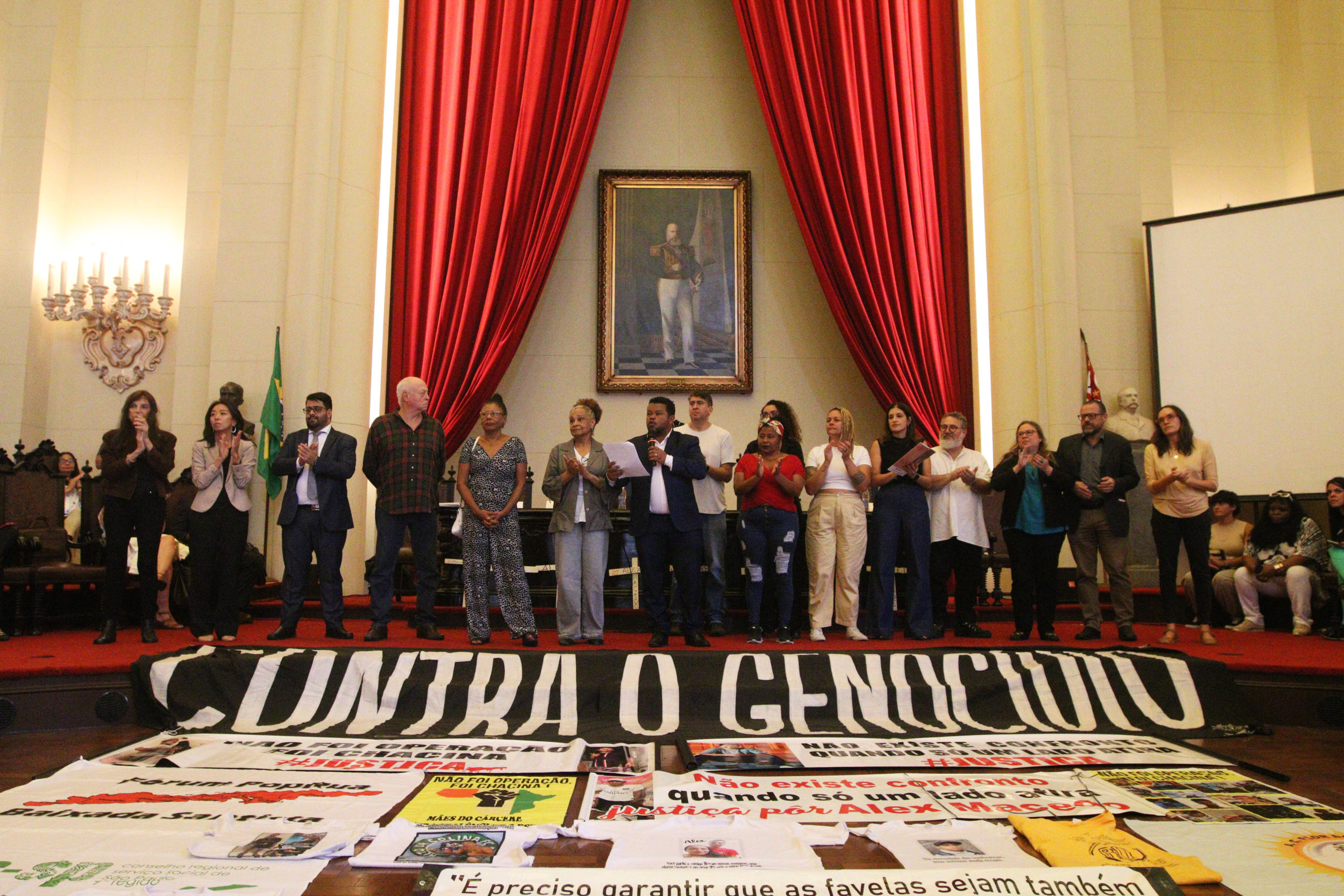Justice for Ayotzinapa
In an interview with Sur Journal 21, activists say the Mexican State has a duty to return their colleagues alive
 “They have to give us back our comrades alive!” The exclamation is from Gerardo Torres Pérez, aged 22. He is a classmate of the 43 students from Ayotzinapa who have been missing since September 2014, when the bus they were traveling in was ambushed by the police. The students were making their way from the city of Iguala to Chilpancingo during a campaign to raise funds for the Raúl Isidro Burgos Rural College – whose teaching model is known for contributing to the training of community leaders.
“They have to give us back our comrades alive!” The exclamation is from Gerardo Torres Pérez, aged 22. He is a classmate of the 43 students from Ayotzinapa who have been missing since September 2014, when the bus they were traveling in was ambushed by the police. The students were making their way from the city of Iguala to Chilpancingo during a campaign to raise funds for the Raúl Isidro Burgos Rural College – whose teaching model is known for contributing to the training of community leaders.
In an interview with Sur Journal 21, Gerardo said that although he managed to escape from the attack, his younger brother was among the group that was taken. “We, as students of Ayotzinapa, continue to say that they have to give us back our comrades alive. It was the State that tore them from us and who took charge of their disappearance, and that is why we continue to defend the same position,” he said.
The episode, which also left another six young people dead, occurred a year ago this week. Several protests and demonstrations are being staged to pressure the Mexican government to reopen the case and conduct a serious investigation to clarify what happened. The events are also protesting the historic wave of violence in the country that has already resulted in the forced disappearance of at least 25,000 people since 2006, according to official estimates.
 “The current state of forced disappearances in Mexico is just as serious, if not more so, as what was experienced during the periods of dictatorship in Latin American countries. We need to put a stop to this situation,” said Jessica Carvalho Morris, executive director of Conectas, who participated in the opening of the photographic exhibition on September 12 at the college in solidarity with the families of the victims.
“The current state of forced disappearances in Mexico is just as serious, if not more so, as what was experienced during the periods of dictatorship in Latin American countries. We need to put a stop to this situation,” said Jessica Carvalho Morris, executive director of Conectas, who participated in the opening of the photographic exhibition on September 12 at the college in solidarity with the families of the victims.
The main demonstration will take place in Constitution Square – the Zócalo – in Mexico City, on September 26. However, protests are also planned from Friday to Sunday in neighboring Mexican states and in countries such as Peru, Switzerland, Belgium and Brazil, where marches are planned in the cities of Rio de Janeiro and São Paulo. In addition to the street demonstrations, other protests are scheduled to take place in Mexico to remember the disappearance of the students. This Wednesday, parents of the victims started a 43-hour hunger strike and, on Sunday, they will place wreaths and flowers on the graves of the six students who were killed during the violent ambush on September 26, 2014. A representative of Conectas is attending the demonstrations in the country.
The Inter-American Commission on Human Rights (IACHR) will have a mission in Mexico between September 28 and October 2 to “observe the general human rights situation in the country, with particular emphasis on extrajudicial executions, forced disappearances and torture,” according to its press release. The agenda of the body of the Organization of American States (OAS) includes a visit to the college that the students attended, on September 29 and 30.
New questions
The investigation of the crime conducted by the Office of the Attorney General quickly concluded that the students had been incinerated at a landfill in Cocula, near the city of Iguala, where the ambush took place. However, with the support of local and international human rights organizations, new accounts of the disappearance of the 43 students are coming to light.
The NGO Tlachinollan was one of the first organizations to call for an independent investigation to be conducted by an Interdisciplinary Group of Experts appointed by the IACHR. After six months of fresh investigations into the case, the experts are questioning the conclusions of the Mexican government.
 In response to the report by the group, which was presented publicly on September 6, Mexican president Henrique Peña Nieto has agreed to talk to the representatives of the families of the victims this Thursday, September 24. The president will have to explain the discrepancies between the official version of the Office of the Attorney General and the conclusions of the independent experts. The report by the experts reveals that, unlike the government claims, there are no signs that the young people were incinerated at the Cocula landfill. According to the report, for the official version to be true, the fire would have had to burn for at least 30 hours, with smoke rising 300 meters high, something impossible to have been ignored and not reported.
In response to the report by the group, which was presented publicly on September 6, Mexican president Henrique Peña Nieto has agreed to talk to the representatives of the families of the victims this Thursday, September 24. The president will have to explain the discrepancies between the official version of the Office of the Attorney General and the conclusions of the independent experts. The report by the experts reveals that, unlike the government claims, there are no signs that the young people were incinerated at the Cocula landfill. According to the report, for the official version to be true, the fire would have had to burn for at least 30 hours, with smoke rising 300 meters high, something impossible to have been ignored and not reported.
“Starting now, the State must agree to implement the recommendations of the group of experts, particularly concerning the restructuring of the investigation with a central focus on the search for the missing students,” said María Luisa Aguilar, coordinator of the international area of Tlachinollan.
María and Gerardo were both in São Paulo in May 2015 to take part in the 14th International Human Rights Colloquium, which was organized by Conectas and attended by more than 130 activists from 40 countries. During the event, they both spoke with Sur Journal about the Ayotzinapa case, the overall situation of disappearances in Mexico and the connection between State forces and organized crime.


